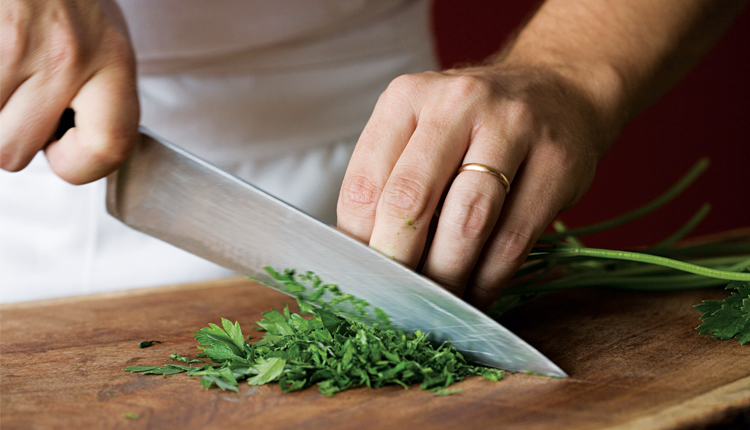Care For Your Kitchen Knives
A set of high-quality, well-maintained knives is an essential element of a kitchen. A good set of sharp knives makes the preparation of food quicker, easier and safer.
Even top-quality knives will blunt if not properly maintained, and a dull blade isn’t just a liability when preparing food – it is also dangerous to use. While a sharp, keen blade will slice through foodstuffs easily and with little effort, a blunt edge needs more pressure to achieve the same results, and is more likely to slip and cause a nasty injury.
There are three main factors to take into account in maintaining your kitchen knives – storage, cleaning and sharpening.
Storage – If you’ve invested in good quality knives, don’t throw them into a cutlery drawer. Rattling around with other knives or pieces of cutlery will dull and potentially chip the blades. So, what is the ideal way to store your knives? Many kitchen blades are supplied in a wooden knife block which absorbs humidity and reduces rusting. However, purists argue that their design can contribute to knife blades becoming dull. For the best results, insert your knives so the non-sharp edge faces down and drags against the wood as the blade slips in and out. Or choose a magnetic knife rack in a dry part of the kitchen.
Cleaning – Rule number one: Don’t put your blades in the dishwasher! A quality knife is a finely crafted, precision tool, and apart from rattling against other items, a high-temperature wash cycle and harsh chemicals will dull their edges. Hand-wash your knives every time, drying thoroughly before putting them away.
Sharpening – Even the best knives will dull with use. If you’re serious about your blades, get your knives sharpened once a year. Your local hardware shop may provide a knife sharpening service, or search on-line. Also consider investing in a good-quality ceramic honing rod, which helps keep the blade sharp on a day-to-day basis.
As a final note, put some thought into the type of chopping board you use. Those made from glass, marble, granite or stainless steel may look great, but their hard surfaces can quickly blunt and even damage a knife edge. Instead, stick to boards made of softer materials such as plastic or wood.

Comments are closed.